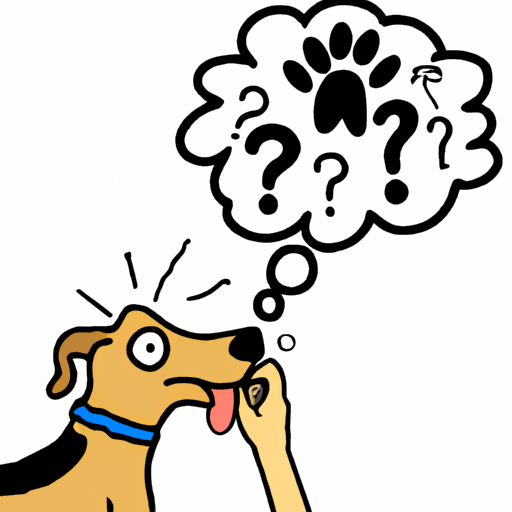Have you ever found yourself in a situation where your beloved furry friend won’t stop licking your hands? While it might be a bit confusing, or even ticklish, it is a behavior deeply rooted in their canine instincts. Understanding their language, the licks, and what it means can help us build a stronger bond with our pets.
Table of Contents
- Understanding Your Dog’s Behaviour
- Reasons Why Dogs Lick Hands
- Is Licking Hands Bad for Dogs?
- How to Discourage Hand Licking
- Frequently Asked Questions
Key Takeaways
- Dogs lick hands to communicate different emotions and needs.
- Hand licking can also be a sign of health-related issues.
- While not inherently bad, excessive licking can be problematic.
- Training and positive reinforcement can help discourage excessive hand licking.
Understanding Your Dog’s Behaviour
Dogs have a range of behaviors that they use to interact with their human caregivers. One of these is licking, particularly licking hands. While this behavior may seem random or unimportant, it is often a form of communication from your dog.
Dogs are social animals, and they communicate primarily through body language. By understanding the reasons behind their behavior, we can better respond to their needs and build a stronger relationship with them. You can learn more about dog behavior on this external link.
Reasons Why Dogs Lick Hands
1. Showing Affection
Dogs often lick the hands of those they consider part of their pack as a sign of affection. This behavior can be linked back to their wild ancestors, where puppies would lick the mouths of adult dogs as a sign of submission and affection.
2. Seeking Attention
If your dog is feeling neglected or bored, they might resort to licking your hands to get your attention. Make sure your dog is getting enough exercise and mental stimulation to prevent boredom and attention-seeking behaviors.
3. Tasting Salts
Dogs may also enjoy the salty taste on human skin. This is especially true if you’ve been cooking, eating, or sweating.
4. Health Issues
Excessive licking can also be a sign of health issues. If your dog is licking your hand obsessively, it might be worth a visit to the vet for a check-up.
For more information about dog behaviors and what they mean, check out this useful resource.
Is Licking Hands Bad for Dogs?
While licking hands is a natural behavior for dogs, excessive licking can be a cause for concern. It can be a sign of anxiety, stress, or health issues. If your dog’s licking is excessive or obsessive, it might be worth consulting with your vet.
For more on this topic, check out this internal link.
How to Discourage Hand Licking
If your dog’s hand licking is becoming a problem, you can try a few different strategies to discourage this behavior.
-
Use a Distraction: When your dog starts licking your hand, distract them with a toy or a game.
-
Ignore the Behavior: If your dog is licking for attention, ignoring them can send the message that licking won’t get your attention.
-
Positive Reinforcement: Reward your dog for not licking. When they choose to stop licking, give them a treat or a praise.
For more tips on training your dog, check out this internal link.
Frequently Asked Questions
1. Why does my dog lick my hands after I’ve been cooking?
Dogs have a keen sense of smell and might be attracted to the scent on your hands after cooking. They might also enjoy the taste of any residual food or spices on your skin.
2. Why does my dog lick my hands when I pet them?
Your dog might be licking your hands when you pet them as a sign of affection or to return the grooming behavior.
3. Is hand licking a sign of anxiety in dogs?
Excessive hand licking can be a sign of anxiety in dogs, but it’s not the only indicator. If your dog is showing other signs of anxiety, such as pacing, whining, or destructive behavior, it’s best to consult with a vet or a professional dog behaviorist. For more information about dog anxiety, check out this internal link.
By understanding your dog’s behavior, you can build a stronger bond with your furry friend and ensure they’re happy and healthy. Remember that if you ever have concerns about your dog’s behavior, it’s always best to consult with a professional.



